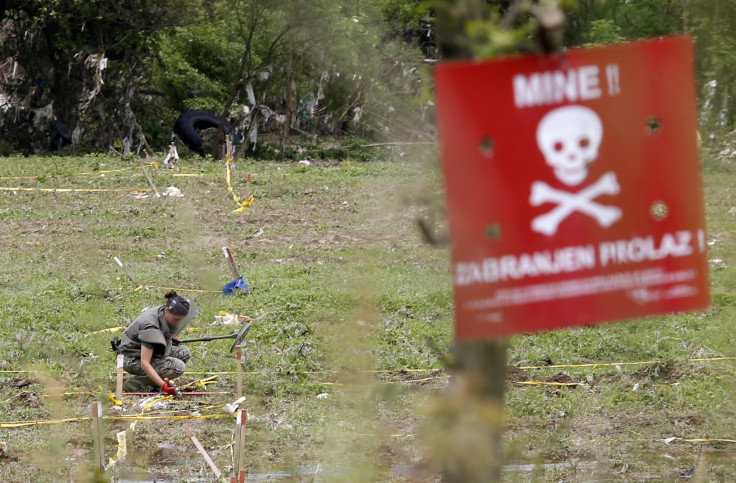US Will No Longer Produce Anti-Personnel Landmines, Says White House

The Obama administration announced on Friday that the United States would no longer produce or buy anti-personnel landmines (APLs).
The announcement was made during a conference in Maputo, Mozambique, concerning the international anti-APL Ottawa Treaty. “Our delegation in Maputo made clear that we are diligently pursuing solutions that would be compliant with and ultimately allow the United States to accede to the Ottawa Convention -- the treaty banning the use, stockpiling, production, and transfer of APL,” a statement from National Security Council spokeswoman Caitlin Hayden reads.
Until now, the U.S. has undertaken its own actions to reduce APLs independent of the Ottawa Treaty, also referred to as the Anti-Personnel Mine Ban Convention. The Ottawa Treaty went into effect in 1999. It bans the use, stockpiling, production and transfer of APL’s and is signed by 161 countries. Notable non-signatories include the United States, Russia, China, Iran, India, Israel and Pakistan.
Critics of the Ottawa Treaty say it is not comprehensive enough and doesn’t cover other problematic traditional weapons like cluster bombs. In 2011, the United States adopted a unilateral self-ban on “persistent” landmines, or landmines that stay active long-term. Instead, the U.S. uses landmines that shut down within hours or weeks of deployment. The U.S. says it has spent $2.3 billion on conventional weapons destruction programs.
Activists praised the U.S. for the step forward, but say it could still do more, namely giving a timeline to join the Ottawa Treaty and a commitment to completely halt the use of APLs. According to the CBC, even with the latest commitment, the U.S. can still use its existing stock of 9 million APLs until they expire.
According to the landmine and Cluster Munition Monitor, casualties attributed to landmines have dropped 60 percent from 1999 to 2012, from about 25 persons per day to around 10 per day. The Monitor says 78 percent of those casualties in 2012 were civilians.
In 1996, UNICEF estimated there were landmines across 64 countries in the world, but most landmine authorities say there's no way to accurately say how many there are. Bosnia and Herzegovina is the most heavily mined compared to its size at 152 per square miles. Egypt has the most: around 23,000,000. Cambodia, Croatia, Iraq, Afghanistan, Angola, Iran and Rwanda also have high numbers of landmines in their territory.
© Copyright IBTimes 2024. All rights reserved.






















